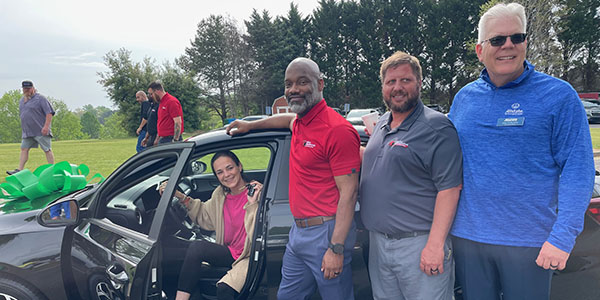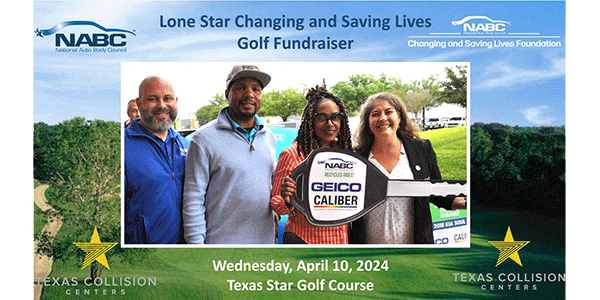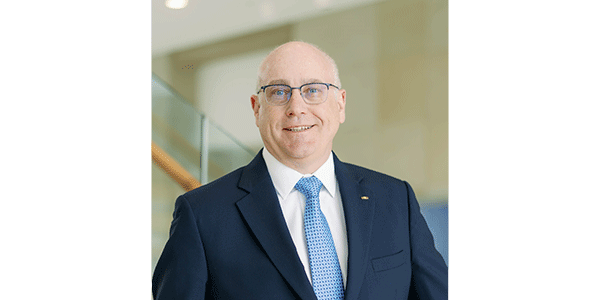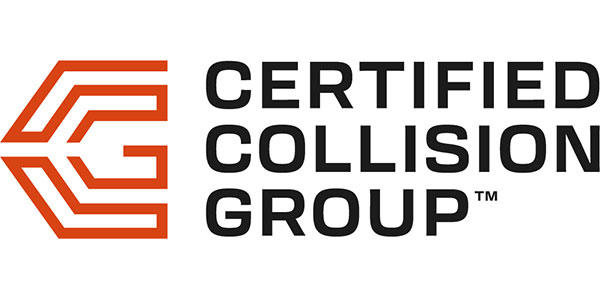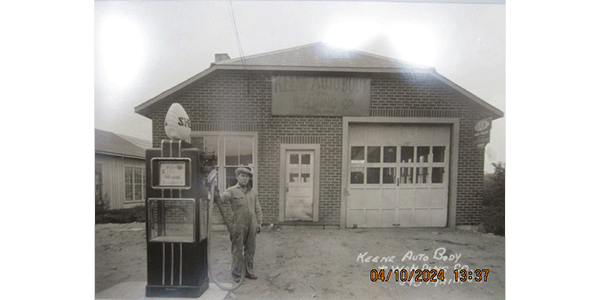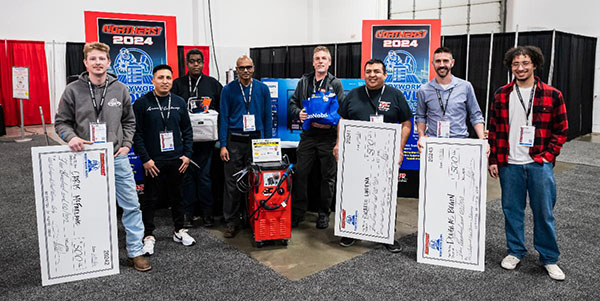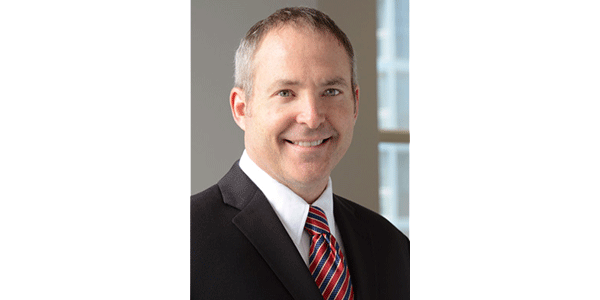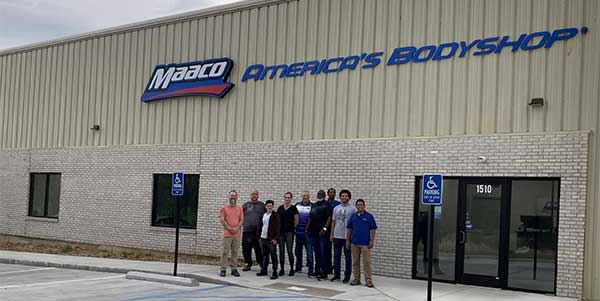After months of speculation, The Carlyle Group announced on Aug. 30 that it had signed a definitive agreement to purchase the DuPont
Performance Coatings (DPC) business for $4.9 billion in cash. The
transaction is expected to close in the first quarter 2013, subject to
customary closing conditions and regulatory approvals.
The pending acquisition no doubt raised many questions in the collision repair industry about the future of DPC, Carlyle’s role as a consolidator and what it may mean for the future of the collision repair industry.
BodyShop Business recently sat down with Matt Robertson, North America Sales Director for DuPont Performance Coatings (DPC), to clear up some of these questions.
BSB: As you know, The Carlyle Group recently bought Service King Collision Repair Centers. Does the fact that Carlyle now owns DPC mean that these stores will transition to DPC products?
Robertson: We had very frank discussions with the senior leadership at Carlyle, specifically the folks who negotiated the deal on behalf of Carlyle with DuPont, and their instructions to us were pretty explicit: they are an equity partner and investment company, not a management company, and they expect each one of the managing teams of the businesses they hold as portfolio companies to make the best decisions for their business and to hit their numbers. So there is no expectation of our doing business with Service King and no strategy change at this time. [Service King and DPC] are owned by the same parent company but expect to be run independently. As an example, [Carlyle] was saying there is no expectation they will use Hertz rental cars even though they own Hertz. Could that change in the future? Sure. But right now, there’s no grand plan on the part of Carlyle or DPC leadership for a tie-up with Service King. If you look at it as an outsider not understanding the structure of a group like Carlyle that has 200 independently run companies, you might be thinking that. Service King is a very successful consolidator, and we would certainly like to have that and other business. I think there has been discussion by uninformed people about some type of grand plan to consolidate or vertically integrate the industry, but what I can tell you right now is that there is no grand plan in place. We plan to continue growing, but we’re expected by our new owners to post the best numbers we can, not necessarily work with all of the other portfolio companies.
BSB: What will happen with the Spies Hecker/Standox brands? Will their logos/names change? Will they be spun off?
Robertson: First, regarding the entire business – meaning collision, OEM, and the liquid industrial and powder business, in all geographies in which its played and sold – there is no desire to split it up. And that includes our brands within refinish.
Because we’ve been DPC as a business unit, we will at some point have to change that name. We have not chosen a name yet; that works goes on. That will go along with a rebranding exercise, because DuPont owns the rights to the oval and understandably only wants us to use that for some time. Brands like Spies Hecker and Standox or things we consider sub-brands like Imron or Cromax Pro are all going with the transaction. All belong to the new entity, and there will be no change required there. We believe we have strong equity built up in all those brands.
Over some time period, probably measured in years and not months, we will be transitioning to a new name and you will see the DuPont name and oval coming off the labels of our products. We serve in the neighborhood of 80,000 shops globally, and so if they have DuPont signage and labels, etc., that’s obviously going to be a little bit of an effort.
BSB: Does this acquisition change DuPont’s waterborne strategy at all?
Robertson: A lot of the conversion to waterborne has been driven by regulation, and then we’ve also seen some early adopters who converted because it’s green or they needed the productivity or they have customers who are responsive to the waterborne story. We feel we have a really strong product out there that’s pretty compelling when it comes to minimizing booth time. But no, you will not see a change in strategy. I think it’s important for our customers to understand that they will see the same products, level of customer service, value-added services and sales force – but that really doesn’t necessarily mean status quo. We’ve been on a share-gain journey for some time now that we feel has been successful. If anything, it will only be accelerated under new ownership.
BSB: What have you communicated to your customers about this acquisition?
Robertson: First of all, there was a very small core group of people who knew about our plans within our business prior to the public announcement. The reason was because this was a big, strategic move, so it tends to be just the folks at the very highest level of leadership who are actually brought into that process. Because this transaction represents $4.5 billion of a $40 billion-a-year corporation, any change in that portfolio could be very meaningful in the stock price, so all of us involved were under very strict SEC regulations in terms of not being able to say anything. So there wasn’t a whole lot we could say until there was a definitive move made. But the whole time, we were preaching caution to our customers and saying that we believe we have the right people and products and great value-added service and don’t worry about the future of this entity. We’re all a good team, we’re all adding value to society and no one is going to go and buy a $4.5 billion company because they want to break it up. They buy it because they think they can run it better than the current owners and think it has great growth prospects. We were preaching a wait-and-see attitude, and I think we would still echo that. We feel the access to capital and the expertise Carlyle has and the ability to be a 100-percent coatings-focused business that is not part of a portfolio that is heavily agriculture and biotech really works to our advantage.
We have been talking at multiple levels. We have prepared our sales force well so that when we got the go order, they were prepared with all their talking points. We have an enormous number of customers in an enormous number of industries or segments, so that work continues. There was an official customer letter that went out both to body shops and our distribution partners in refinish. We followed it up with one-on-ones with all four salespeople and talking with people in the trade press to try to get the word out there. At this point, I don’t know if there are any other plans for broader announcements, but I think our customers have been very understanding. Frankly, after a bunch of Reuters reports came out, they suspected something was up, so it hasn’t been a huge surprise to them and I think everyone has viewed it really positively.
BSB: Was the selling of DPC a reflection of the collision market, which seems to be shrinking rather than growing?
Robertson: First, remember that DPC consists of four completely separate businesses. We’re seeing some growth in OEM, and we’re having a pretty good run with heavy duty truck right now. And even the powder business is good, so DPC is a very successful business right now. DPC selling to Carlyle is just representative of a long-term change in strategy for DuPont. For the first 100 years, it was all gunpowder, then for the second 100, DuPont was largely one of the world’s dominant forces in chemicals. The move into the third century is largely wrapped around what we would call world megatrends that our CEO has articulated and that drive where she wants to place portfolio bets – and that’s largely feeding and protecting the world and reducing people’s dependence on fossil fuels. [DPC] really doesn’t fit into that portfolio. Over time, DuPont has divested a lot of its core businesses, but that certainly doesn’t represent a lack of value of these businesses. We got a very high multiple for the business, there was a real bidding war between a lot of sophisticated private equity firms, all of whom believe there is growth in the business. The growth in business they see, at least in the U.S., is in share versus increasing volume. We have great growth prospects (20 percent-plus) in a lot of Asian markets and Russia, but the U.S., for a variety of good reasons, is going to be a declining volume market. But again, that’s just one piece of the DPC portfolio.
BSB: Can you comment on the profit squeeze collision repair facilities are facing due in part to the rising cost of paint and materials?
Robertson: I can’t comment on future pricing plans. I think people are being squeezed at all levels of the collision repair chain, and we’re just one of them. When you look at what a shop is spending, paint comprises 4, 5 or 8 percent of the overall, so they have the same concern with parts. I think our distributors are feeling squeezed, too. We’re seeing the cost of raw materials and the investment in things like color going up every year, so it’s sort of just normal in an industry that’s consolidating, and it will be incumbent on people at all levels to take cost out. We think our costs or prices are very fair, especially given the shop productivity we can show with our new products. So while the per can price might be high, in terms of what you get out of it, we actually think prices are very fair.
BSB: What is the outlook for DuPont’s NASCAR sponsorship activities?
Robertson: It will continue. It’s a big part of the DPC DNA. We created DuPont Motorsports in 1992 and are celebrating our 20th year with Jeff Gordon this year, so it’s really important to us and I think it’s important to our customers. We have a contract with Jeff and Hendrick Motorsports that extends through 2013, and we’re committed to that and believe we built a lot of equity with that. I can’t really tell you what the future holds, but we’re going to be working between the DPC leadership and the Hendrick organization and Jeff’s team to figure out what the future holds.
BSB: Will there be any staff changes as the result of the acquisition?
Robertson: Regardless of who the owner is, [staffing] could change in the future. But the word from our new owners is that they’re an equity partner and financial company, not a management company. They’re expecting to give us our financial target to hit, and it’s the responsibility of the management team in place to do that.
For our customers, they’ve heard it a lot, but we’re committed to making it a seamless transition with them, so they shouldn’t expect to see changes to products or people or strategies or anything like that – at least in the short term. The rebranding issue will work out, and once we figure that one out we will be vocal with our customers about that. In sum, we’re very excited about the prospects of being associated with a company that has the type of resources Carlyle has.
More information:
The Carlyle Group to Buy DuPont Performance Coatings Business for $4.9 Billion
The Carlyle Group Closes Acquisition of Service King Collision Repair Centers

